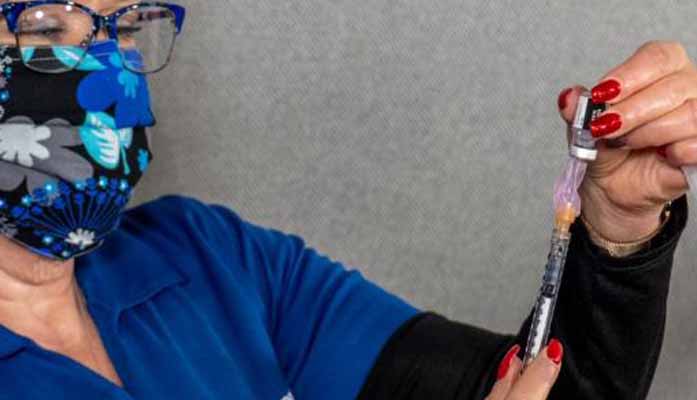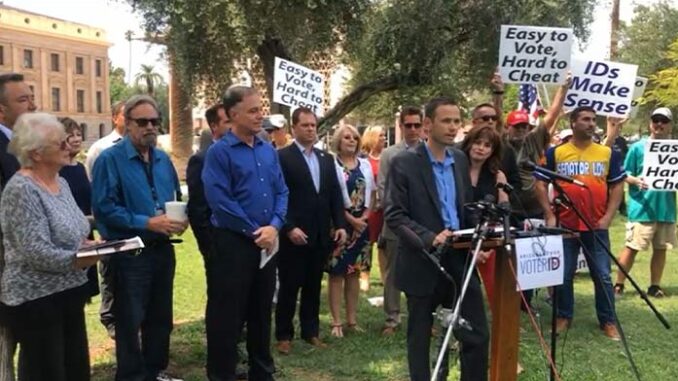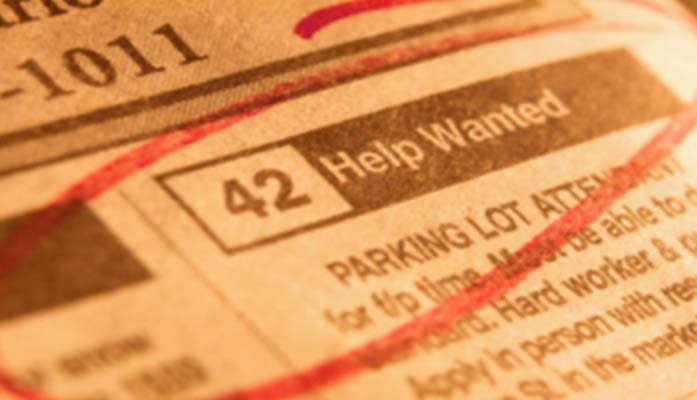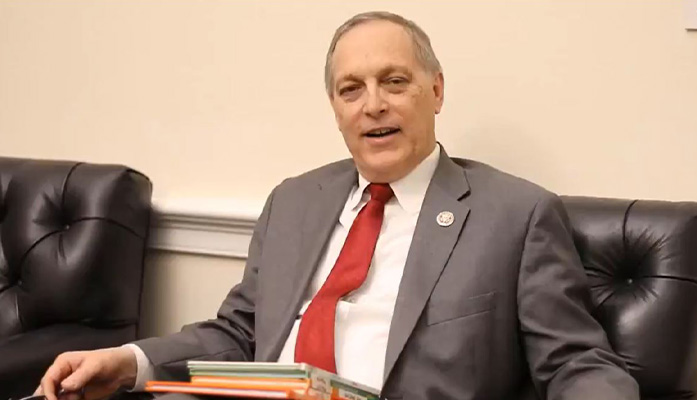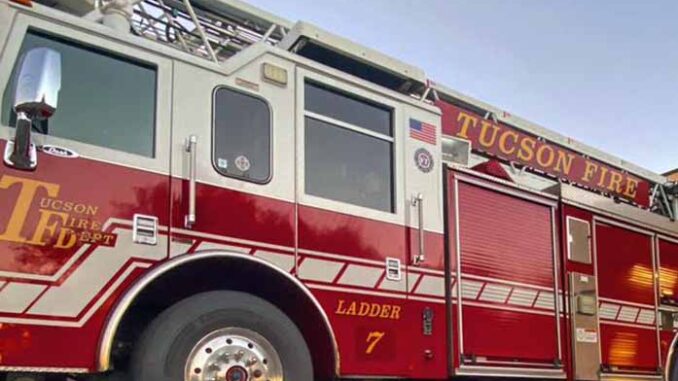
by Corinne Murdock | Aug 24, 2021 | News
By Corinne Murdock |
The FDA approval of Pfizer’s COVID-19 vaccine, now marketed as COMIRNATY, doesn’t mean it’s safe or effective, according to Dr. Jane Orient, Executive Director of the Association of American Physicians and Surgeons (AAPS). Orient made these statements on the radio show, The Conservative Circus.
Orient asserted that this FDA approval was rushed. Due to the hastened timeline of the COVID-19 vaccine’s approval, Orient speculated that the FDA may be corrupt.
“What the FDA did was to rush this through without public hearings, without an investigation of the more than 12,000 deaths that have occurred within a couple of weeks of getting the vaccine, or the many thousands of cases of permanent disability,” said Orient. “That doesn’t mean the vaccine is safe – it may just mean the FDA is corrupt.”
In her interview with Conservative Circus, Orient also asserted that the Department of Justice (DOJ) opinion that emergency-use authorization treatments could be mandated wasn’t consistent with law.
Orient warned that the FDA itself admits that they can’t confirm the long-term effects of the vaccine.
“There are many authorities that say they would not give this vaccine to young people period because they have no way of knowing what the long-term effects are,” said Orient. “If you read the package insert that the FDA just released, it says that they are not able to say that the vaccine has been tested for effects on fertility, cancer, autoimmune diseases, or other things. These things take time to manifest, and there has not been time and the surveillance system is very, very poor.”
Included in the package insert is another warning for cases of myocarditis and pericarditis – heart inflammation that can be fatal – particularly within 7 days of the second dose. The clinical studies note that many recipients aged 16 to 55 reported adverse reactions mirroring flu-like symptoms: fatigue (70 percent), headache (65 percent), muscle pain (45 percent), chills (41 percent), joint pain (27 percent), and fever (18 percent). Recipients aged 56 and older reported less adverse reactions.
Orient pointed out that the government pulled the swine flu vaccine after a number of Guillain-Barre cases were reported (estimated at one in 100,000) which were linked to 53 deaths. She said that she doesn’t believe the COVID-19 vaccine is absolutely necessary for anyone.
The FDA and CDC have warned against the use of ivermectin to treat COVID-19. Orient said that this was “terrible advice,” along with their insistence that hydroxychloroquine shouldn’t be used to treat COVID. She said that hundreds of doctors and thousands of patients have used these drugs effectively to treat COVID.
“The safety is known for hydroxychloroquine and ivermectin. The safety is known for those two drugs,” insisted Orient.
Orient has testified before the Senate on the efficacy and safety of hydroxychloroquine.
Pfizer’s brand name for their vaccine, COMIRNATY, mashes up the words “community,” “immunity,” “mRNA,” and “COVID.”
Corinne Murdock is a reporter for AZ Free News. Follow her latest on Twitter, or email tips to corinne@azfreenews.com

by Corinne Murdock | Aug 24, 2021 | News
By Corinne Murdock |
Last week, the Secretary of State’s office received the “Arizonans for Voter ID Act:” a ballot initiative to strengthen ID requirements for in-person and mail-in voting through universal voter ID. The initiative will require ID for mail-in ballots, but will also provide a free voter ID to those registered voters who need it. Voters would also be required to give certain information: their date of birth, as well as either the last four digits of their Social Security Number, driver’s license number, or nonoperating state identification number.
Proponents of the Arizonans for Voter ID Act assert that its voter ID requirement will also deter ballot harvesting. The political committee that filed the ballot initiative, Arizonans for Voter ID, was joined in their efforts by the Arizona Free Enterprise Club, Heritage Action, Honest Elections Project Action, Foundation for Government Accountability, the Goldwater Institute, the Republican Liberty Caucus of Arizona, AMAC Action, and Arizona Women of Action.
As required by law to qualify for the 2022 November ballot, the Arizonans for Voter ID Act acquired at least 237,645 signatures by July 7.
Arizona Free Enterprise Club President Scot Mussi asserted that most Arizonans and all other American citizens support strong voter ID.
“This initiative will ensure that no matter when you vote, where you vote, or how you vote, identification will be required,” said Mussi.
The polls support this claim. Over 60 percent of Arizona voters support voter ID. Nationally, around 80 percent of Americans support voter ID.
In July, U.S. Supreme Court Justice Samuel Alito ruled that Arizona law makes it “quite easy” for individuals to vote. The court case, Brnovich, et al. v. Democratic National Committee, et al., outlined the provisions of Arizona voting law that ease the burden for voters. Alito noted that this included in-person voting on Election Day, 27 days of early in-person voting, and only one application required for mail-in voting which could be extended perpetually through the Active Early Voting List as long as voters vote once within two straight two-year election cycles (rebranded from “Permanent Early Voting List,” or PEVL, through legislation passed earlier this year limiting the system’s perpetuity).
ID plays a role in many mainstream societal transactions, as Arizonans for Voter ID Committee Chair Vicki Vaughn argued.
“Arizonans show identification all the time in their daily lives to purchase alcohol, receive unemployment benefits, make major transactions, and board a plane, among others,” stated Vaughn. “Requiring identification before casting a ballot is necessary for our elections.”
A photo ID or another valid, government-issued ID is also required for the following: obtaining a driver’s license, receiving certain in-patient or out-patient doctor or hospital treatments, receiving certain over-the-counter or prescription medicines, buying guns or ammunition, visiting schools or jails, filing court documents, adopting a child, engaging in parole or probation, receiving auto insurance, donating blood, cashing or paying with checks, pawning items, responding to a traffic stop, obtaining a passport, picking up packages at the post office, buying cigarettes, opening a bank account, renting or buying a house, applying for a mortgage, adopting a pet, renting a hotel room, applying for a hunting or fishing license, establishing a utilities account, and applying for a job.
Learn more about the Arizonans for Voter ID Act here.
Corinne Murdock is a reporter for AZ Free News. Follow her latest on Twitter, or email tips to corinne@azfreenews.com.

by Terri Jo Neff | Aug 24, 2021 | Education, News
By Terri Jo Neff |
Although Arizona is not yet back to pre-pandemic workforce levels, a recent U.S. Bureau of Labor Statistics report shows the state is headed in the right direction, with more than 21,000 jobs added in July, boosting Arizona to fourth place in percentage of jobs recovered post-COVID19.
That means Arizona has restored all but around 20,000 of the 331,500 jobs lost in the pandemic’s aftermath, giving the state at a recovery rate of 93.7 percent. Only three states -Utah, Idaho, and Montana- have a better percentage of recovery than Arizona as of July.
Yet despite the state’s positive trajectory, many small business owners, economists, and job placement officials remain worried about whether Prop 208’s 3.5 percent income tax surcharge will go into effect or not, and whether legislation aimed at blunting any impact will withstand its own legal challenge.
The surcharge was narrowly approved by voters last November to hit Arizonans earning more than $250,000 (single filing) or $500,000 (joint filing) in an attempt to increase K-12 funding. The tax was designed to be on top of the then-existing income tax of 4.5 percent, but last week the Arizona Supreme Court ordered a Maricopa County judge to determine whether Prop 208 tax revenues will exceed the Education Expenditure Limit set in the Arizona Constitution.
If the answer is yes, then the judge must declare Prop. 208 unconstitutional and enjoin state officials from putting the tax surcharge into operation, the justices ordered.
Gov. Doug Ducey signed legislation in June to change Arizona’s individual income tax structure over the next three years and to blunt the surcharge effect. The legislation also provides small businessowners an alternative to the surcharge. But until the Prop 208 legal issue is resolved, there are worries that Arizona’s recovery will slow due to small business owners reducing spending -such as employee compensation and benefits- to cover any additional tax burden.
Others may choose to abstain from hiring or even decide to cut personnel. And that is a point of concern for those trying to get jobs for all Arizonans who want one.
The same Bureau of Labor Statistics report shows Arizona’s rate of unemployment was 6.6 percent in July, ranking 40th in the nation. That ties with Alaska, Louisiana, and Pennsylvania, while Utah, Idaho, and Montana had unemployment rates at 2.6, 3.0, and 3.6 respectively, among the Top 10 lowest percentages for July.
Arizona’s current unemployment rate, however, is a vast improvement from April 2020, when the state had 14.2 percent of work-eligible adults out of jobs, a historical high. In addition, next month’s end of two Arizona Department of Economic Security (DES) unemployment benefit programs is expected to spur many out-of-work Arizonans back into the workforce.
Those programs -Pandemic Unemployment Assistance (PUA) and Pandemic Emergency Unemployment Compensation- are scheduled to expire for the workweek ending Sept. 4. Ducey and DES have created a Back to Work program with several features to help Arizonans transition back to work, including childcare vouchers, educational incentives, and even hiring bonuses for eligible individuals.

by Corinne Murdock | Aug 24, 2021 | News
By Corinne Murdock |
Last month, Representatives Paul Gosar (R-AZ-04) and Andy Biggs (R-AZ-05) voted against expediting visas for Afghans fleeing the Taliban. The Averting Loss of Life and Injury by Expediting SIVs Act (ALLIES) Act applies to Afghans that assisted the U.S. in the war: this includes interpreters, contractors, and security.
The ALLIES Act ensured that Afghans could receive special immigrant visas more quickly by removing certain application requirements, namely the proof that the applicant was currently experiencing or had experienced an ongoing serious threat due to their employment with the U.S. government. Instead, Afghans could apply if they believed there existed the possibility of a serious threat. The act also increased the number of available visas by 11,000.
Gosar explained that he is more focused on bringing Americans home safely. He argued that this should be the first and only priority, before assisting Afghans.
“How many US citizens are trapped in Afghanistan? I don’t see reliable info on this. It’s critical we get our people out safely,” said Gosar. “It’s not critical to use planes to bring Afghans here. To see our transports full of illegal aliens and not US citizens is immoral.”
Although the ALLIES Act was introduced in a bipartisan manner, 16 House Republicans voted against the measure.
In addition to Gosar and Biggs, “no” votes on the ALLIES Act included Representatives Lauren Boebert (R-CO-03), Mo Brooks (R-AL-05), Scott DesJarlais (R-TN-04), Jeff Duncan (R-SC-03), Bob Good (R-VA-05), Marjorie Taylor Greene (R-GA-14), Kevin Hern (R-OK-01), Jody Hice (R-GA-10), Thomas Massie (R-KY-04), Barry Moore (R-AL-02), Scott Perry (R-PA-10), Bill Posey (R-FL-08), Matthew Rosendale (R-MT), and Chip Roy (R-TX-21).
Corinne Murdock is a reporter for AZ Free News. Follow her latest on Twitter, or email tips to corinne@azfreenews.com.

by AZ Free News | Aug 24, 2021 | Education, News
The National Education Association’s state affiliate tried to harass and intimidate Rhode Island mom Nicole Solas into silence just for trying to find out what her daughter would be taught in kindergarten by filing a legally baseless lawsuit against her. The union even went so far as to seek emergency relief from the court to circumvent the public records law and prevent Nicole from receiving public information.
Today, the union withdrew its baseless request for emergency relief. Nicole has contended since the union first filed this case that the union has no standing and no legal right to bring the action. The union’s voluntary withdraw of its motion appears to recognize the union’s flimsy legal standing.
Earlier this year, Nicole began making public records requests to find out her daughter’s kindergarten curriculum—doing just as her school district asked her to do. But for making these requests, she was stonewalled and even threatened with legal action. The Goldwater Institute made an additional records request on her behalf—and in response, the South Kingstown School Committee hit her with a $74,000 bill to get the information she sought.
The NEA had asked for a preliminary order from the court that would direct the South Kingstown School Committee to stop responding to Nicole’s public records requests. But today, the union withdrew its extraordinary request, and the School Committee now must still meet its statutory deadlines and other requirements to respond to Nicole’s public records requests.
“Nicole and every parent has every right to know what is being taught in their children’s classrooms,” said Goldwater Institute Director of National Litigation Jon Riches, who represents Nicole. “The union’s reprehensible attempt to harass and intimate Nicole and other parents was seen today for what it is—a legally baseless assault that will not stand.”
>>> READ MORE >>>

by Corinne Murdock | Aug 23, 2021 | News
By Corinne Murdock |
Tucson’s vaccine mandate may be the end of a career for many first responders. The city now requires that all of its employees receive the COVID-19 vaccine by Tuesday – also the deadline for all religious and medical exemption applications. If not, city employees face penalties such as unpaid suspension and are excluded from certain benefits such as leave. The council plans to convene again on September 9 to determine whether they’ll make refusal of the vaccine a fireable offense; this decision is contingent on the amount of employees who get vaccinated.
The vaccine mandate impacts first responders the most. According to city data, firefighters and police officers have the lowest vaccination rates among city employees. City data also notes that these first responders collectively answered nearly 435,000 calls in 2020 – even with stay at home orders and mandated closures.
One legal challenge to the vaccine mandate has already been shot down. Pima County Superior Court Judge Richard Gordon denied a request from the Tucson Police Officers Association (TPOA) for a restraining order against the city policy. Gordon said that TPOA and those who testified failed to show that they would suffer irreparable harm from the mandate.
Tucson City Council asserts that strict measures should be taken for those who don’t get vaccinated – even termination. Councilman Steve Kozachik suggested that the city fire all employees who don’t become fully vaccinated by the end of September.
“If left to me, I’d set a date [or] a deadline and terminate anyone who doesn’t get vaccinated,” stated Kozachik. “The ordinance should say ‘get vaccinated by September 25 – fully vaccinated – or you forfeit your employment as a city worker.’”
Tucson’s mandate comes as health officials are urging booster doses of the vaccine, following reports of more breakthrough cases and a spike in the Delta variant.
In an executive order published two weeks ago, Governor Doug Ducey clarified that vaccine mandates were outlawed by statute. The governor noted that any violations of this law would be considered a class 3 misdemeanor and subject to legal action.
In relation to Ducey’s remarks on the legality of vaccine mandates, Attorney General Mark Brnovich announced last week that his office was investigating Tucson’s vaccine mandate.
The Department of Justice (DOJ) published an opinion last month arguing that emergency use authorization-only vaccines could be mandated.
State Representative Jake Hoffman (R-Queen Creek) told AZ Free News that this mandate was a politicized move that threatens public safety. The representative assured that the state legislature would mete out proper justice if Tucson doesn’t retract its mandate.
“Tucson has gone full communist with its latest threat to fire employees who make the individual choice to hold off on taking the COVID vaccine at this time,” stated Hoffman. “The fact that Tucson’s partisan politics would sacrifice public safety to promote an unlawful, anti-science, forced vaccination policy is a bridge too far. If the far-left politicians in Tucson refuse to follow the law, the legislature will have no choice but to address their lawlessness come January.”
Similarly, Alex Kolodin, the attorney for the biology teacher suing Phoenix Union High School District (PXU) for its mask mandate, said that Tucson’s mandate is a means of catching the President’s attention.
“Firing first responders during the public health emergency just so that they can suck up to Joe Biden by flouting the law seems like a really bad move,” assessed Kolodin.
Corinne Murdock is a reporter for AZ Free News. Follow her latest on Twitter, or email tips to corinne@azfreenews.com.
